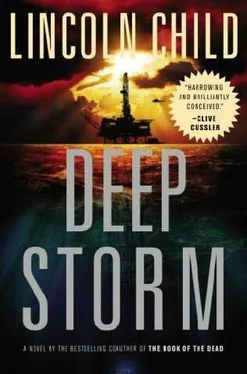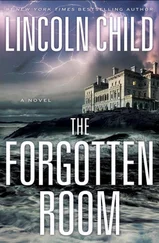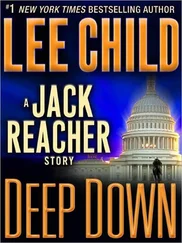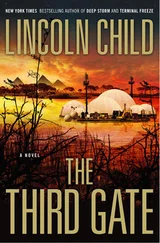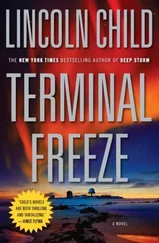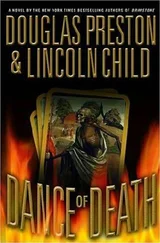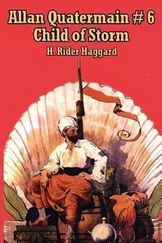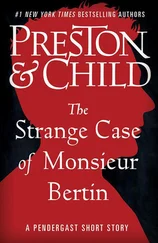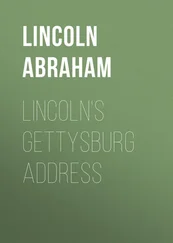"Not even I have all the answers, Commander Korolis. They must be held in that orbit by some force, some technology, we don't understand. To the naked eye, they appear to be a single body. And to Rafferty's instruments, they appear to be emitting Hawking radiation of both matter and antimatter."
"But in reality they are two separate entities," Korolis said.
"Of course, " Rafferty breathed. "Just as the individual spectrum readings on my laptop indicate."
All of a sudden, Korolis understood. It was unimaginably powerful, and yet so elegant in its simplicity. His euphoria returned. "Two black holes," he said, more to himself than the others. "One matter, one antimatter. Locked together but not touching. And if the force that held them in orbit was removed…or, as it were, shut off …"
"The matter and antimatter would collide," Rafferty said grimly. "Utter and complete conversion of matter into energy. It would release more energy per unit mass than any other reaction known to science."
"Let me see that." Korolis replaced Dr. Flyte at the viewscreen. His heart was hammering in his chest, and his hands were slick on the control handles. He stared at the glowing, pulsating thing below him with new reverence.
When this descent had started, he'd had hopes of discovering some new and revelatory technology; something so awesome and overwhelming it would guarantee America's supremacy. Now he had succeeded beyond his wildest dreams.
"A bomb," he whispered. "The greatest bomb in the universe. And it fits in a matchbox."
"A bomb ?" said Rafferty. There was a note of concern, even fear, in his voice. "Sir, as a weapon, what we're looking at is of no practical use."
"Why is that?" Korolis said, not taking his eyes from the viewscreen.
"Because it could never be used. If those two black holes ever collided, the resulting explosion would be staggering. It would destroy the solar system."
But Korolis was no longer listening. Because the dark infinitude in his viewscreen was now subtly changing.
Where before there had been inky blackness-broken only by the shimmering light of the single artifact-now a faint, even blush of light was suffusing the spaces below. It was like the light of predawn. And Korolis caught his breath at what it revealed. There was not one artifact, but hundreds- thousands -held in the clear matrix that spread out beneath him. The nearer ones glowed with their strange, alien light, while those farthest away were mere pinpricks, almost invisible to the eye. Between them all, sentinels prowled, tendrils rippling, ceaselessly vigilant.
It was a prize beyond all hope, beyond all imagining, beyond all measure.
Korolis leaned back, wiped the sweat from around his eyes with the back of a hand, leaned in again. "Return to your station," he told Flyte. "Ready the robot arm."
The cybernetics engineer blinked. "I beg your pardon?"
"Ready the robot arm. Extend it down one meter."
"But that would put it in contact with the surface of-"
"Exactly."
There was a pause. Then Rafferty spoke up. "Forgive my saying so, sir, but are you sure that's wise, given the apparent nature of-"
"I'm letting them know that we're accepting their gift."
Another pause. Then, murmuring something in Greek, Flyte turned to his station, grasped the arm's trigger mechanism.
On the screen, Korolis watched as the robotic arm came into view below the Marble. It moved forward hesitantly, a little jerkily, one steel finger extended. And once again his mind flashed back to his childhood trip to Rome. He remembered standing in the Sistine Chapel, staring upward, mouth agape, at Michelangelo's depiction of the Creation of Adam: the fingertips of God and man about to touch-the first moment of life-the start of a universe…
The arm came in contact with the glasslike surface. It dimpled inward, like transparent gelatin.
Korolis thought he heard a faint singing, a low susurrus of sound like a choir atop a distant mountain. This is what it is like to touch eternity …
Instantly, the two sentinels floating on either side winked out of sight. One moment they were there; the next they were gone, ghostly reflections now of mere memory. As he stared, a bright light bloomed deep within the cavity below them. It had the golden brilliance of a tiny sun. And its fierce light suddenly revealed all the secrets of that deep void. Korolis gasped, stunned, as its true enormity-and the staggering, overwhelming number of artifacts contained within it-was laid bare.
This was a cache of death that could threaten the entire cosmos.
"If just one could blow up a solar system, why do they need thousands?" he muttered.
In the sudden silence, Flyte asked a question. "Do you know why the Parthenon is such a ruin?"
This was so bizarre that Korolis turned toward the old man despite himself.
"The Turks," he went on, once again sounding serious. "They used it as a munitions depot in the eighteenth century. A stray shell blew it up. This is the same thing, Commander. It's a weapons dump, the fruit of some intergalactic arms race. Something far beyond our technical comprehension."
"That's rubbish," Korolis said. "Has Dr. Crane been talking to you?"
"I'm afraid it's not rubbish. We were never meant to find this. These weapons were buried so they could never be found or used. Because they could absolutely destroy not only the world, but this section of the universe ."
"Sir!" Rafferty said. "I'm getting some very strange readings."
"What kind of readings?"
"I've never seen anything like it. A completely alien energy signature. And it's moving toward us at a tremendous rate of speed."
"'A generation of men is like a generation of leaves,'" Flyte sang in a low, mournful, dirgelike voice. "'And the season of spring comes on.'"
As he turned back to the viewscreen, Korolis realized the sun that had blossomed into existence far below them was not so tiny, after all. The singing grew louder, became an unearthly shriek. A moment later, Korolis realized the sunlike object was moving -passing by the sentinels and the artifacts, bomb artifacts, so quickly now they were mere blurs of color. For a brief moment, something about its single-minded trajectory reminded him of an antiaircraft missile. And then, as it drew closer and became clearer, it no longer looked like anything he'd ever seen before; racing up through the void toward him, growing and still growing until its fiery light filled the entire viewscreen, flinging off tongues of flame in bright angry curls like molten shavings…
…And then-as it engulfed Marble Three and erupted up the tunnel, vaporizing Korolis's flesh and carbonizing his bones in less than a millisecond-there was no time to feel surprise, or fear, or even pain.
"Thirty seconds," the tech at the control panel said. "Maximum buoyancy achieved."
Vanderbilt looked up from the instrumentation. "Hang on, people. This is going to be a rough ride."
Below, the sounds of gunshots had ceased.
Crane looked around. The escape pod had gone utterly still now, and in the faint blue light the sea of faces looked drawn, tense, worried.
"Ten seconds," the tech said.
"Ejection sequence initiating," said Vanderbilt.
Now Crane could hear-echoing up through the entrance tube-the clang of some metallic object against the outer hatch. Over his shoulder, somebody began to pray loudly. Crane reached over and took Hui Ping's hands in his.
"Ejection under way," said the tech.
There was a sharp jolt, the grinding of metal on metal, and then the escape pod shot upward like a cork. Crane felt himself pressed into his seat as they rocketed toward the surface. He glanced down through the porthole but could see only a storm of bubbles, illum-mated by the pod's running lights.
Читать дальше
